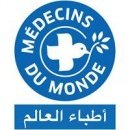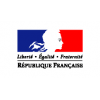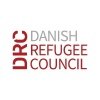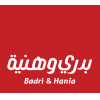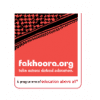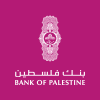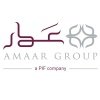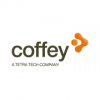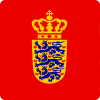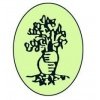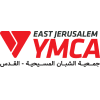Sexual and Reproductive Health and Rights (SRHR) Assessment
الوصف
Terms of Reference for conducting Sexual and Reproductive Health and Rights (SRHR) Assessment in West Bank and Gaza, occupied Palestinian territory (oPt)
- background and rationale
Médecins du Monde (MdM) has been working in the Occupied Palestinian Territory (oPt) since 1995 and has become one of the major actors in Mental Health and Psychosocial Support (MHPSS) and Emergency Preparedness and Response in the oPt.
MdM has decided to redefine its strategy in the oPt to be careful not to have a mono-sectorial position. SRH has been a priority area for MdM since 2010. Between 2010 and 2013 a general framework for intervention on SRH was established at Headquarters level. During this period the number and type of projects has developed, and the recommendations set out in the position paper have been progressively integrated. There are now over 30 projects which include an SRH element at both France and international level.
MdM is committed to promoting respect for the right to health and universal access to SRH services by strengthening the continuum of care from the community to referral services and throughout the lives of users of these services.
These commitments are realized through two types of complementary intervention:
- provision of holistic, accessible, high-quality care;
- advocacy to promote the right to access appropriate health services.
In 2014, MdM implemented a program on SRHR which provided Family Planning to the community of Al Bureij in Gaza strip with local partner, Cultural Free Thought Association (CFTA). The intervention was successful but highlighted the widespread problem of unwanted pregnancies. An assessment conducted in 2018 by MdM, concluded that Gender-based Violence (GBV) related to unwanted pregnancy continues to be a significant health need in the West Bank (WB) and identified similar factors between GBV and unwanted pregnancies in Gaza.
Implementation of GBV services is integrated in MdM’s MHPSS programs through partnership with local organizations and the Ministry of Health (MoH). MdM conducts training on Mental Health Gap Action Programme (mhGAP), which is a WHO programme that addresses the lack of care for people suffering from mental, neurological and substance abuse (MNS) conditions, among MoH staff and local partners’ staff where GBV and disability are integrated in the training curriculum. In West Bank, MdM works with the MoH in strengthening the capacity of MoH staff in detecting GBV cases, providing MHPSS and referral of GBV cases using the national referral system. Through MH emergency response activities, MdM staff are also equipped to detect GBV cases seen during MHPSS interventions and provide necessary referrals to GBV actors in the WB. In Gaza, MdM implements GBV component through the partnership with implementing partners, such as CFTA and Awda Health and Community Association (AWDA) while the MoH serves as the operational partner. MdM works with partners in building the capacity of their staff in the detection, provision of services and referral. With CFTA, included within the partnership are additional GBV activities concerning raising the awareness of the community on GBV and MH and breaking the stigma against this taboo and culturally sensitive topic to improve uptake of GBV and MH services. An MdM exploratory mission conducted in 2016 looked at the population health needs for SRH in West Bank. From the exploratory mission, Gender Based Violence (GBV) prevention, response, and management, together with management of unwanted pregnancies (UWP), were identified as main gaps. These gaps informed the areas focused upon in the MdM SRH assessment conducted in West Bank in 2018. Furthermore, the deep assessment identified and surveyed suitable partners for MdM to facilitate a strategy for SRH in Palestine for the next 3 years. Currently, there are no ongoing SRH projects implemented in the oPt.
Following the MdM SRHR exploratory mission in 2016 and SRH assessment in WB in 2018, the aim of this consultancy is to conduct new SRHR assessment in the oPt that will guide the mission in designing new programmes and to identify new potential partners that MdM can work with in implementing SRHR activities.
II Objectives of the ASSESSMENT
The objectives of the assessment are:
- Update of SRHR context analysis in the oPt: factors influencing the situation, “stakeholders” and networks mapping and analysis, opportunities, constraints, and essential conditions identified. The 2018 SRHR assessment conducted in WB is an important reference point for the update.
- Conduct gender analysis, identifying the different needs, capacities, vulnerabilities and coping strategies of women, men, boys, and girls to be able to better meet those needs – especially SRHR needs and needs in terms of protection.
- Identification, prioritization and analysis of the main health and social health problems/needs related to sexual and reproductive health- GBV: quality of the SRH services access in the oPt with a specific focus on family planning, GBV, breast cancer, adolescent SRH, and menopause.
- Identification of new partners in Gaza and WB to implement potential SRH projects.
- Proposition of an intervention strategy, including strategical, operational, and technical recommendations and logical framework for both long-term and emergency projects, ensuring integration of cross-cutting MHPSS topic in the intervention.
TARGET AREAS FOR ASSESSMENT: north WB governorates (including Salfit, Qalqilya, Nablus, Tulkarem, Tubas-Northern Jordan Valley, Jenin and Ramallah) and Gaza Strip governorates
-
Context analysis guide questions
- What is the general Palestinian political, social and economic context and legislation in relation with SRHR services provision and access (e.g. family planning, GBV, abortion, gynecological cancers)? And what is its impact on the SRH services delivery and rights?
- Which are the main communities who are lacking access to quality SRH services in MDM area of intervention?
- What is the impact of economic situation on the health of the individual and family level (with a major focus on SRH activities)? % of community members reaching SRH services in private clinics
- What is the allocated public budget for health and SRH- MoH and Ministry of Finance?
- What are the MoH, WHO, UNRWA’s and other actors SRH strategies in Palestine?
- Who are stakeholders who can likely have a positive or negative impact on a health initiative? Anlyse power dynamics and influence
- What are the health laws and bylaws related to SRHR? specifically on abortion?
- What are the current programs of SRHR implemented by MoH, WHO, UNRWA, UNFPA, and other international and national (INGOs and NGOs) actors?
- What is the impact of the political social and economic Palestinian context on the quality access to SRH? Access for vulnerable groups, such as adolescents, GBV survivors, menopausal women, unmarried individuals?
- GUIDE QUESTIONS FOR GENDER ANALYSIS
- Who is affected by the crisis in the oPt? And more specifically, how does the crisis affect women, men, boys, and girls in terms of:
- poverty and livelihoods?
- access and control over economic resources and services?
- public health issues (including SRH, GBV and mental health (MH))?
- What are the main roles and responsibilities of women, men, girls, and boys? Is there a fair workload distribution (including domestic / “care” work)? How does the distribution affect their respective rights for growth and opportunities? What are the dynamics between women, men, girls, and boys? How do women and men help or hinder each other to meet their needs and rights? Who perpetrates violence against whom? What roles do the community and institutions play in meeting needs and rights, as well as addressing and preventing violence?
- Who has access to services:
- access to healthcare (including SRH and MHPSS services)?
- access to protection and service for gender-based violence survivors (shelter, legal aid, financial support among others?
- What prevents others from gaining access to those services?
- Who makes decisions in terms of access to healthcare, and protection services? Who has information about existing services? Has there been any change since the beginning of the crisis in terms of access to these services?
- How and from where do men, women, boys, and girls receive information about SRHR? Explore the relevance of internet and social media as sources of information.
- What are the factors influencing access to healthcare (including SRH) and protection in (eg. legal framework, community attitudes, perceptions, beliefs, and behaviours)
- What are the main needs in terms of access to healthcare, MHPSS, SRHR and protection from GBV, identified by the different gender and age groups in?
- What are the existing beliefs in the community about GBV and attitude towards GBV survivors?
- Are there existing mechanisms in the community in terms of GBV prevention and protection of GBV survivors?
- GUIDE TO ASSESS SRH SERVICES AT HEALTH COMMUNITIES/COMMUNITIES OR LACK THEREOF:
- To identify and collect data/ information about hospital and PHC facilities and its SRH related services, main causes leading to death, child and mother health services (access and quality), maternal mortality rate, infant and under five mortality rate, malnutrition rate, average of low birth weight, breastfeeding rate
- Collect and analyze essential Reproductive health data / info: fertility rate, use of contraception, identify family planning methods, unmet need for contraceptives, prenatal care, antenatal care, antenatal visits, content of antenatal care, pregnancy complications, health care and assistance at delivery, place of delivery Abortion and post abortion care; cancer screening (e.g., breast, cervical cancer)
- Early child development: inadequate care, child discipline, early marriage and GBV
- Identify prevalence of Sexually Transmitted Infections (STI), HIV, early marriage and its prevention and management programs
- What are the social and religious factors affecting the SRHR (family planning and abortion) in Palestine?
- What possible socio-religious risks MdM might face in SRHR?
- What are the possible risks MdM might find if intervening in SRHR?
- What are the possible opportunities for MdM to work in SRHR in the oPt?
- Are MHPSS services integrated within the SRH services provided at MoH Health Facilities (HFs) level or by SRHR actors in the oPt?
- Is emergency preparedness integrated in existing SRH services/programs?
- Are available SRHR services addressing specific needs of vulnerable groups: GBV survivors, unmarried individuals, adolescents, Persons with Disabilities (PWDs), menopausal women?
- GUIDE QUESTIONS IN ASSESSING POTENTIAL PARTNERS
- Which organizations are currently providing SRHR services in the oPt?
- What type of services are they implementing and their targeted areas “cities, villages, towns and refugee camps”? Are their programs women rights oriented and inclusive for marginalized groups?
- Who are the possible partners with MDM in SRH intervention in the north WB and Gaza?
- GUIDE IN DEVELOPING INTERVENTION STRATEGY
Based on the synthesis of the principal elements of the diagnosis:
- Identification of the health and social problems on which an intervention could be based and identify the possible interventions to respond to different identified problems.
- Justification of the proposition: why the health problem has been chosen in the given context/Justification of prioritization criteria, why such an intervention has been proposed (partners, stakeholders, constraints, and opportunities, etc.), what is the potential added value of this intervention, etc, ensuring integration of MHPSS at all levels of SRHR and GBV service provision.
- Propose a log frame (activities/results/indicators/verification/risks/hypothesis) of an appropriate project for MdM-F; addressing the assessed needs and taking into consideration MdM-F capacities. In the perspective of care and protection within a holistic approach, the proposed intervention strategy and project should include the following components:
- Community based approach: work through and/or with Community Based Organizations (CBOs), religious leaders, etc
- Health prevention, education, and counselling
- Health facilities, Schools, and CBO’s capacity building
- Detection and case management/referral according to the health and social problem identified
- Multi-annual strategy, where question of sustainability should be considered and answered.
- Emergency preparedness and SRH response
- Integration of MHPSS services, GBV responses and PWDs as cross-cutting integrated activities within the intervention.
- Communication and advocacy based on the right to access sexual and reproductive health services
II methodology of the ASSESSMENT
-
quantitative/qualitative methods
A mix of quantitative (for example, visit checklist of the healthcare centres; databases of humanitarian actors, questionnaires) and qualitative (individual semi-structured interviews, focus group discussions, observations) methods are requested to reach the objectives of the assessment.
The MdM guides (for example, Data collection: qualitative and quantitative methods) may be a useful reading.
III Tasks
In consultation with key program and technical staff, the consultant/firm will be responsible for defining the parameters of the assessment, including the finalization of an assessment plan to be shared with MdM France coordination team.
Key activities include, but not limited to:
- Desk review: Review MdM SRH Exploratory Mission Report in 2016 and SRH Assessment in West Bank in 2018 and other existing materials to identify areas in need of further information or clarification. MdM France will provide consultant/firm with all the relevant proposal documents (narrative, framework and target groups)
- Development of a detailed inception report and assessment work plan
- Construction and validation of assessment protocol
- Identification of population target group and key informants, including but not limited to MoH personnel (PHCCs users), SRH actors, and community members. MdM France will support the consultant/firm in identifying respondents.
- Development/preparation of questionnaires, focus group discussions (FGD) and key informant interviews (KII) guides: Guides and questionnaires should be updated in consultation with MdM France program staff. In addition, a clear description of the quality control mechanism that will ensure a quality assessment should also be developed
- Coding questionnaires
- Deciding and constructing data entry and analysis tools
- Developing schedule and team deployment plan
- Implementation of the assessment (data gathering), with strong consideration of quality control mechanism for a quality assessment
- Analysis of findings and presentation of the report: The consultant/firm will be responsible for the analysis of findings and drafting of the final report. The report must provide a clear picture, addressing the objectives of the assessment
IV expected deliverables of the consultaNt/firm
- Assessment plan: The consultant/firm is expected to submit a detailed plan of how the assessment will be carried out including the survey protocol. The plan will outline the tools and detailed work plan for the entire exercise.
- Inception Report and Meeting: Provide an inception report and hold a briefing meeting with MdM-F on the background, objectives, the scope, expected deliverables, and timelines of the assessment as well as the proposed methodologies and tools for data collection. Questionnaires, KII and FGD guides: Draft tools will be shared with MdM France for technical review, inputs, and comments. The consultant/firm will incorporate MdM France comments into the final version and field test tools before carrying out the assessment
- Mid-course Progress review meeting: In the course of the assessment and after coding and data entry, the consultant will hold a meeting with the MdM Assessment focal person to report progress and discuss any challenges that may have been observed
- Strategy Workshop and delivery of Intervention Strategy draft: Restitution of the diagnosis and group exercises in order to elaborate a first draft of a strategy or at least a logical framework. This will include stakeholders from MoH, civil society and MdM-F team. A draft of intervention strategy should be delivered as part of the final report.
- Final Report: submit a final draft report based on MdM-Fs comments. A draft of the report will be shared with key MdM France staff for review before the end of the consultancy to allow time for review before the release of the final report. Raw data should be provided to MdM-F to allow further analysis should program needs arise.
- De-Briefing: Final de-briefing presentation outlining the key findings from the analysis, as well as the successes, challenges, and lessons learned from the activity. To be conducted by the lead consultant, for MdM-France, as a power-point presentation.
Handover notes and electronic versions of collected data to be shared with MdM France. All data must be provided electronically, and all field assessment remains the property of MdM France.
V MINIMUM CRITERIA FOR CONSIDERATION OF THE PROPOSAL BID
The consultant/firm is expected to demonstrate that it has a track record of not less than three (3) years of experience executing similar assessment in similar set-up with diverse geographic and group compositions. The consultant/firm should also list the scale of similar projects worked on in the past.
The consultant/firm is expected to display:
- High sensitivity to conflict-affected settings and diversity issues;
- Good interpersonal, administrative and management skills;
- All Bidders are required to meet the following minimum requirements in order to qualify to consider their proposal:
- Previous experience in similar assessments
- Capability of the assessment team: Team member(s) shall have health background, with strong experience conducting assessment in SRH/GBV, along with relevant experience in MHPSS and strong knowledge on theory of change
- Attachment of all supportive documents with the technical proposal is required
- Knowledge of the project area and knowledge of the local language(s) will be considered a plus
VI preparation of the technical AND FINANCIAL proposal
Technical proposal should include the following at minimum:
- A brief introduction of bidding consultant/firm or person attaching relevant CVs. The proposed survey team members must, at minimum, possess the qualifications and experience indicated above.
- Similar projects worked in the past. The technical proposal shall provide a description of the consultant/firm including an outline of the consultant/firm’s recent experience on similar undertakings. Provide the profile of each of the assessment team members including an outline of the members’ recent experience & duration of involvement on assignments of work of similar nature.
- Your understanding of the Terms of Reference.
- Proposed methodology and approach. The methodology will include a detailed timeframe with clear schedule for deliverables along with all the proposed tools. The methodology should include quality control mechanisms and basic accountability tools.
- Proposed work plan and detailed budget (Should express all proposed costs in Euros). The financial proposal should list itemized details of costs associated with the assessment.
VII contractual considerations
- MdM France will provide at no cost to the consultant/team:
- Space at MdM Offices to hold meetings/presentations with MdM France key staff and Coordination Team members when needed or required
- Relevant project documents as deemed necessary
- The consultant/firm must comply with MdM France rules and procedures related to security, confidentiality and relations with the media.
- The consultant/ team must respect the ethics related to evaluation practice under MdM France Code of Conduct.
- Security would be provided and organized by MdM France team; and consultant/team must comply with security rules established.
VIII contract anD payment
Upon the signature of the contract,
- the consultant/firm will receive 30% of the total consultancy instalment,
- 30% of the total consultancy instalment will be received upon the delivery of the first draft and annexes of the final report ,
- the remaining 40% of the total consultancy instalment will be paid after the review and approval of the final report and its related annexes by MdM France team
IX how to apply
If you feel you/your organization fit the required profile and are available for the assignment, please submit your proposal with all the required supportive documents as specified above.
All technical proposals and supportive documents including the detailed budget need to be submitted via mail to: [email protected] before the 30th of April 2023 specifying in the subject: SRH Assessment Palestine 2023.
مكان تنفيذ الخدمة
قطاع غزة, رام الله والبيرة
موعد الإنتهاء
30, Apr, 2023
شارك هذا العطاء




